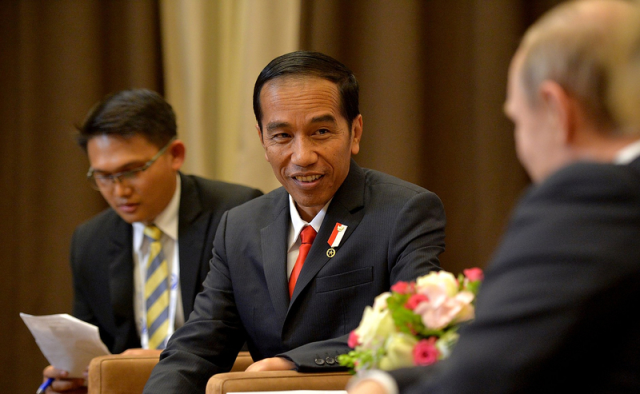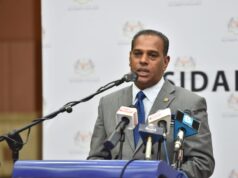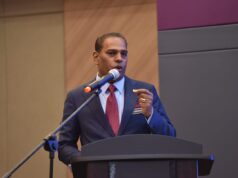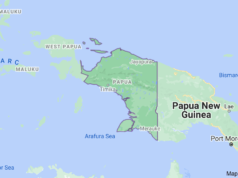Jakarta – When Indonesian President Joko Widodo came to power two years ago on Thursday after a closely fought election, he faced an opposition majority in the legislature bent on obstructing him.
Today the tables have turned. Joko’s coalition now holds some 67 per cent of the parliamentary seats after two key coalition parties switched allegiance in a move attributed to his astute political manoeuvring.
“Jokowi has been very successful in consolidating his power,” said Emrus Sihombing, a political analyst at Pelita Harapan University.
“Now there’s hardly opposition to his policies,” he said.


Indonesian President Joko Widodo during a bilateral meeting with Russian President Vladimir Putin on May 18, 2016 in Sochi, Russia. Two years into his presidency, Joko Widodo has consolidated his power and made some economic headway, but growing military influence has sparked concerns about the future of democracy. (Credit Image: © Alexei Druzhinin/Planet Pix via ZUMA Wire)
Joko, a former furniture businessman, won the presidential election in 2014 promising to boost economic growth and eradicate corruption.
“We’re seeing progress in the infrastructure sector, with the construction of new power plants, roads and railway lines, and people appreciate that,” said Ari Kuncoro, an economics professor at the University of Indonesia.
“With the favourable political climate, Jokowi can implement his economic plans without hindrance,” he said.
Public satisfaction with Joko’s performance has also increased, according to a recent poll.
A survey released in September by the Jakarta-based private think tank Centre for Strategic and International Studies found that Widodo’s popularity rose nearly 16 per cent, to 66 per cent, from last year.
Joko enjoys high approval ratings for his perceived success in improving food security, strengthening the domestic industry and developing the country as a maritime power – among his key campaign promises, according to the poll.
He has also won plaudits for making health care and education more accessible for the poor.
The president has jetted across the far-flung archipelago to inaugurate and inspect various infrastructure projects, as part of his signature hands-on leadership style.
“God willing, Papua and West Papua [provinces] won’t be dark anymore by 2019,” Joko said after inaugurating six power plants in Papua on Monday.
Joko has courted China to help build the country’s infrastructure, whose dilapidated state is seen as an impediment to strong growth.
China is building a 140-kilometre high-speed railway connecting the capital Jakarta and Bandung in West Java, while direct foreign investment from China has also increased.
The Indonesia economy grew 5.2 per cent year-over-year in the second quarter.
“Indonesia needs to achieve economic growth of more than 6 per cent if it wants to create more jobs,” Ari said.
Joko is not without his critics.
His appointment of a former military chief with a dubious human rights record has raised doubts about his commitment to solve cases of past rights abuses, including army excesses in the rebellious Papua region.
“In terms of human rights, I give him zero,” said Haris Azhar, the head of the local human rights group Kontras.
“Not a single past rights abuse case has been solved,” he said.
Joko’s tacit alliance with the military has raised concerns about the return of military control over civilian life.
Under Joko, the military has been given non-combat roles including increased security functions, helping police in combating terrorism and drug trafficking, as well as serving as advisors in the government’s food self-sufficiency programme.
“Indeed, constrained within a tangle of oligarchic politics, Jokowi has to do what needs to be done to advance his political goals,” wrote Emirza Adi Syailendra, an analyst with the S. Rajaratnam School of International Studies at Nanyang Technological University in Singapore.
“The puzzling question is, however, whether these political transactions will, in the long run, be worth it for Indonesia’s democratic progress,” he added.
-dpa










